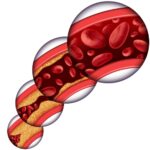Recognizing the signs of an eating disorder is crucial for seeking help and improving your health. Eating disorders are serious conditions that can affect both physical and mental health. Here are some indicators that might suggest you have an eating disorder:
Eating disorders are complex mental health conditions that can significantly impact an individual’s physical and psychological well-being. Early recognition of the symptoms is vital for timely intervention and effective treatment. This article outlines the key signs of eating disorders, providing a comprehensive guide to understanding and identifying these critical warning signals.

Preoccupation with Weight, Food, and Body Image
Obsessive Thoughts
Constant preoccupation with calories, dieting, weight, and body shape is a common sign of eating disorders. Individuals may find themselves obsessing over their food intake and body image, often feeling a compulsion to monitor and control their diet obsessively.
Negative Body Image
A negative body image involves persistent dissatisfaction with one’s body and frequent comparisons with others. This distorted perception of body size and shape can lead to severe self-esteem issues and unhealthy behaviors aimed at altering one’s appearance.
Unusual Eating Habits
Restrictive Dieting
Severe restriction of food intake, skipping meals, or eating only specific types of food are hallmark behaviors of restrictive eating disorders. Individuals may limit their food consumption to an unhealthy degree, leading to nutritional deficiencies and significant weight loss.
Binge Eating
Binge eating involves consuming large quantities of food in a short period, often accompanied by a sense of loss of control during the episode. This behavior can lead to feelings of guilt, shame, and distress, contributing to the perpetuation of the disorder.
Purging
Purging behaviors, such as self-induced vomiting, excessive exercising, or misuse of laxatives and diuretics, are methods used to compensate for food intake. These behaviors are dangerous and can lead to severe physical health complications.
Physical Symptoms
Weight Fluctuations
Significant changes in weight, whether gaining or losing a lot of weight in a short period, can indicate an eating disorder. These fluctuations often result from extreme dietary practices or compensatory behaviors.
Gastrointestinal Issues
Frequent stomach cramps, constipation, acid reflux, and other digestive problems are common among those with eating disorders. These symptoms result from inadequate nutrition and the body’s response to irregular eating patterns.
Fatigue and Dizziness
Persistent fatigue, fainting spells, and dizziness are signs of inadequate nutrition. These symptoms indicate that the body is not receiving the necessary nutrients to function correctly, leading to overall physical weakness.
Emotional and Psychological Signs
Anxiety and Depression
High levels of anxiety, particularly around meal times, and persistent feelings of sadness and hopelessness are common emotional signs of eating disorders. These mental health issues often exacerbate the eating disorder, creating a cycle of negative emotions and unhealthy behaviors.
Perfectionism
Setting unrealistically high standards for oneself, especially related to body image and eating, is a common trait among those with eating disorders. This perfectionism can drive individuals to engage in extreme behaviors to achieve their ideal body image.
Social Withdrawal
Avoiding social events or gatherings where food is involved is a typical behavior of individuals with eating disorders. This withdrawal stems from anxiety about eating in front of others and the fear of judgment.
Behavioral Changes
Ritualistic Eating Patterns
Engaging in ritualistic eating behaviors, such as cutting food into tiny pieces, eating very slowly, or following specific routines while eating, can be indicative of an eating disorder. These behaviors are often used to exert control over food intake.
Secretive Eating
Hiding food, eating in secret, or lying about how much food has been consumed are behaviors associated with eating disorders. This secrecy is driven by shame and the desire to hide disordered eating habits from others.
Avoidance
Avoiding meals with family or friends or making excuses to skip eating are common behaviors in individuals with eating disorders. This avoidance is often a way to escape the anxiety associated with eating in social settings.
Seeking Help
Talk to a Professional
Consulting with a healthcare provider, therapist, or counselor who specializes in eating disorders is a crucial step in seeking help. Professional guidance can provide a structured treatment plan and support system.
Reach Out to Support Networks
Confiding in trusted family members or friends who can offer support and understanding is essential. Building a strong support network can provide emotional comfort and practical assistance during recovery.
Educate Yourself
Learning more about eating disorders helps individuals understand the condition and its effects. Education empowers individuals to recognize unhealthy behaviors and seek appropriate help.
Join Support Groups
Joining a support group allows individuals to share experiences and receive support from others facing similar challenges. These groups offer a sense of community and understanding that can be invaluable during recovery.
Conclusion
Eating disorders are complex and multifaceted, affecting physical, emotional, and psychological well-being. Recognizing the signs early and seeking professional help is crucial. If you or someone you know is struggling with an eating disorder, don’t hesitate to reach out for support. Recovery is possible with the right resources and assistance.
FAQs
How can I tell if my eating habits are unhealthy? Unhealthy eating habits often include restrictive dieting, binge eating, and purging behaviors. Monitoring your thoughts and feelings around food and body image can help identify disordered eating patterns.
What are the health risks associated with eating disorders? Eating disorders can lead to severe physical health complications, including heart problems, digestive issues, and nutritional deficiencies. They also significantly impact mental health, contributing to anxiety and depression.
Can eating disorders be treated? Yes, eating disorders are treatable. Early intervention and a comprehensive treatment plan involving medical, nutritional, and psychological support can lead to recovery.
How do I support a friend with an eating disorder? Supporting a friend with an eating disorder involves offering understanding, encouraging them to seek professional help, and being patient. Avoid judgment and provide a listening ear.
Is it possible to recover from an eating disorder on my own? While self-help strategies can be beneficial, professional guidance is crucial for full recovery. Eating disorders are complex and often require a structured treatment plan.
What resources are available for eating disorder support? Numerous resources are available, including healthcare providers, therapists, support groups, and educational materials. Organizations like the National Eating Disorders Association (NEDA) offer valuable support and information.
Learn about NutriBlooms Services
Post navigation
PreviousPrevious post:Understanding Eating Disorders: Why It’s Crucial to Face Your Condition and Consult a Dietitian
NextNext post:Top 10 Weight Loss Myths Debunked by a Professional Dietitian



